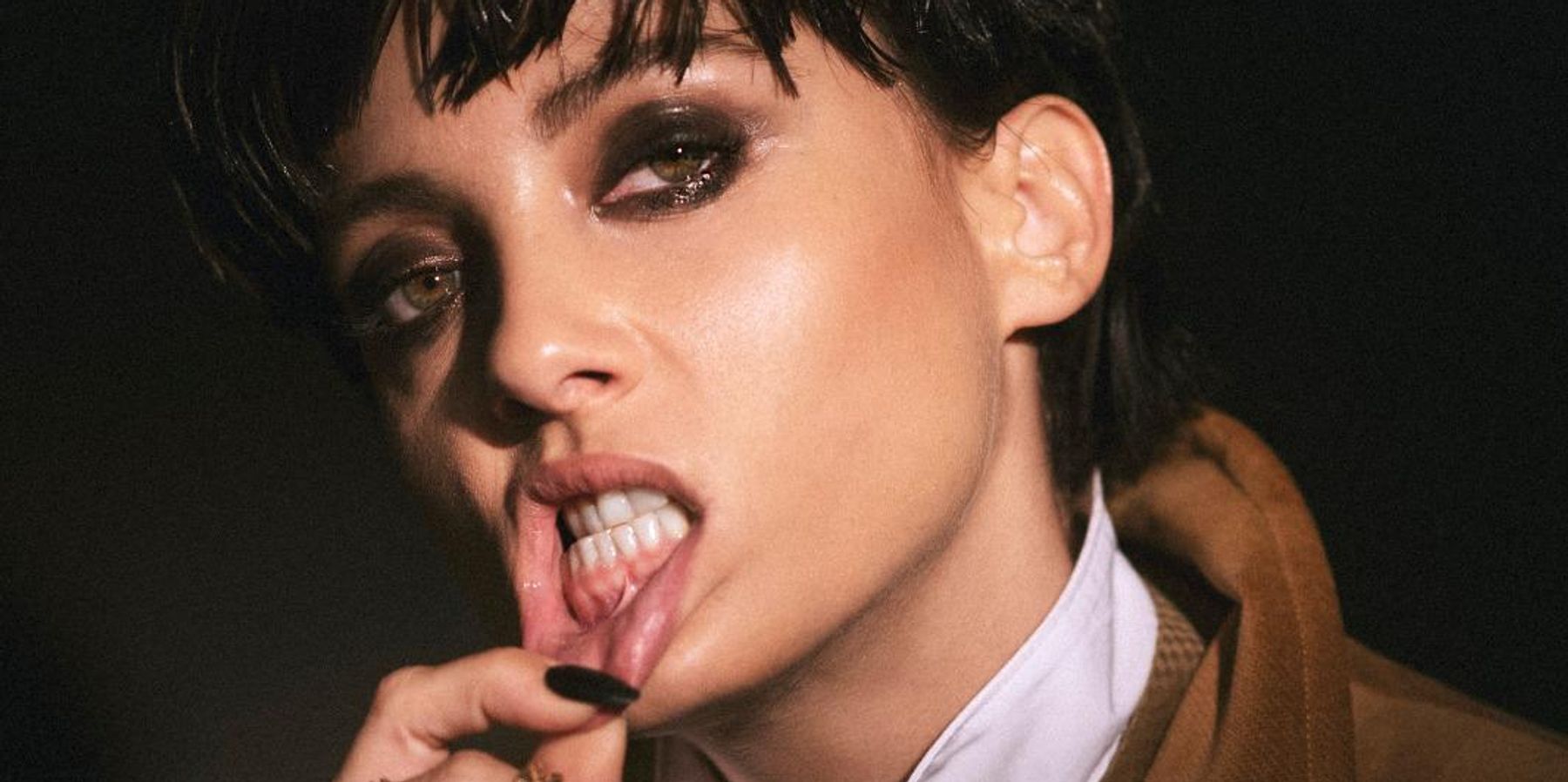
Music
Noga Erez on Making Pop Music in Locked Down Israel
Story by Ilana Kaplan / Photography by Eran Levi
26 March 2021

In the three years since the release of her debut album Off the Radar, Noga Erez has pushed herself to not only create bolder pop songs, but tell more personal stories.
While Erez's 2017 debut came with limited expectations, the Israeli musician and producer felt the pressure of the sophomore album. "I feel like when you release your first album, you release everything you've worked on your entire life until that point," Erez told PAPER on a recent phone call. "But then the second album, we started writing it with the understanding that there are people expecting it. There will be someone listening to it."
Related | Demi Lovato Phones Home
Made with her creative and life partner Ori Rousso, KIDS (out today) is the culmination of political turmoil, pandemic isolation, loss, family ties and ambition. While all of these themes are woven throughout the album, one central motif surfaces throughout: "This is really all about one generation passing something on to the next generation and how much responsibility it gives us as human beings."
With KIDS, Erez isn't afraid to push genre boundaries, oscillating from a pulsating, gloomy kiss-off to an emotionally abusive ex ("You So Done") to bass-heavy political anthems ("Fire Kites" and "KIDS") and bombastic R&B tracks about mortality ("End of the Road").
Ahead of the release of Erez's second LP, she spoke to PAPER about political strife, how grief impacted KIDS and how she makes her hybrid creative-romantic partnership work.
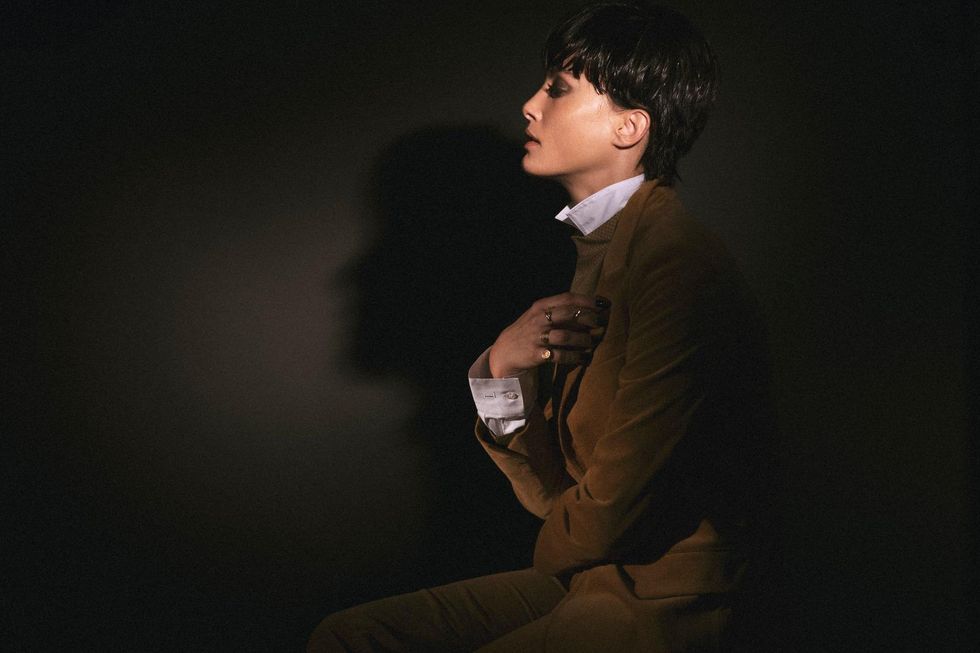
How has the political situation in Israel been a weight on top of the pandemic?
Well, it's huge honestly. I think the pandemic has only just made things more clear in a way that the government and the prime minister are not really working for the people, they are working mainly for themselves and to maintain their seats. This is in a way this whole situation, I think for the entire world is an opportunity to really see things the way they are. And what we discover is that people here don't just work and pay taxes, women give two years and men give three years — sometimes more — of their lives to the country by serving the army. Many people feel [like], when they are supposed to get something back for everything that they gave? It's just not what is happening. And people are extremely disappointed. People are protesting like crazy, and it has been going on for a long time. Everyone is feeling the burden of being citizens of a country that is basically corrupt.
How have you personally been spending your time during this pandemic? How has it been for you as a creative?
I mean, for me, I'm just extremely lucky. I have been continuing to work and be creative, and I finished my album and film videos. I'm just extremely lucky to have a really supportive record label [with] City Slang and to have people around me who just kept pushing and giving me good energy. I have been very, very active doing the same things that I was doing, besides touring, and obviously financially not being able to perform has been tough. For a time we were really thinking what are we going to do? Because at some point we realized that this is not really a temporary situation, but then good things have happened to us. We were able to make money during this time.
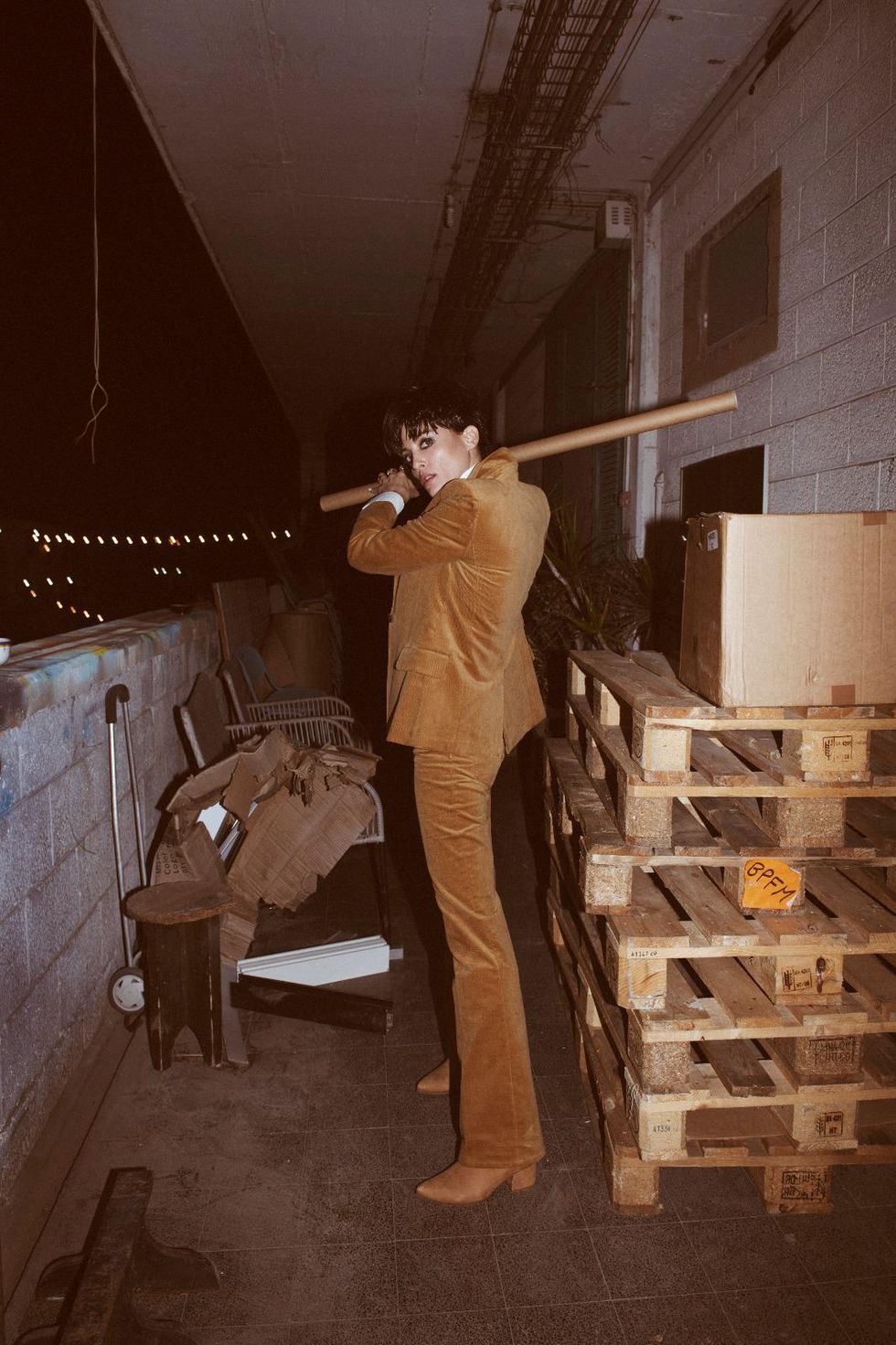
Were you guys able to have your music or merch support you during this time? Or did you have other means of financial support?
I mean, we were releasing songs all the time, and royalties were good. We're making music for commercials. We are still making music — we're making a living out of music, and it's just a time for us to be able to see that what we have cannot be taken for granted. That is the one thing that I can say that is so positive about this whole thing is that we got a really good kick in the butt and a good perspective.
With your new record KIDS, how was the process of making it different than your last one?
It was so different. I feel like when you release your first album, you release everything you've worked on your entire life until that point. But then the second album, we started writing it with the understanding that there are people expecting it. There will be someone listening to it. You don't know these things when you make your music before you're somebody. It just changes your whole perspective. At times it was really a psychological thing. Some days knowing that would make things very stressful for me because I wanted the album to be better than the previous one. And some days that was fully the motivation, knowing that I'm just doing something that is based on the success of what I was doing previously. So the whole process was so different. Also, I think me and Ori (Rousso), who's still my partner, have improved in so many different things. The lyrics are far, far better, and the music is so much more focused. But it's just playing between the confidence that you have because [of] experience and the extreme insecurity that can be present when you know that someone is listening.
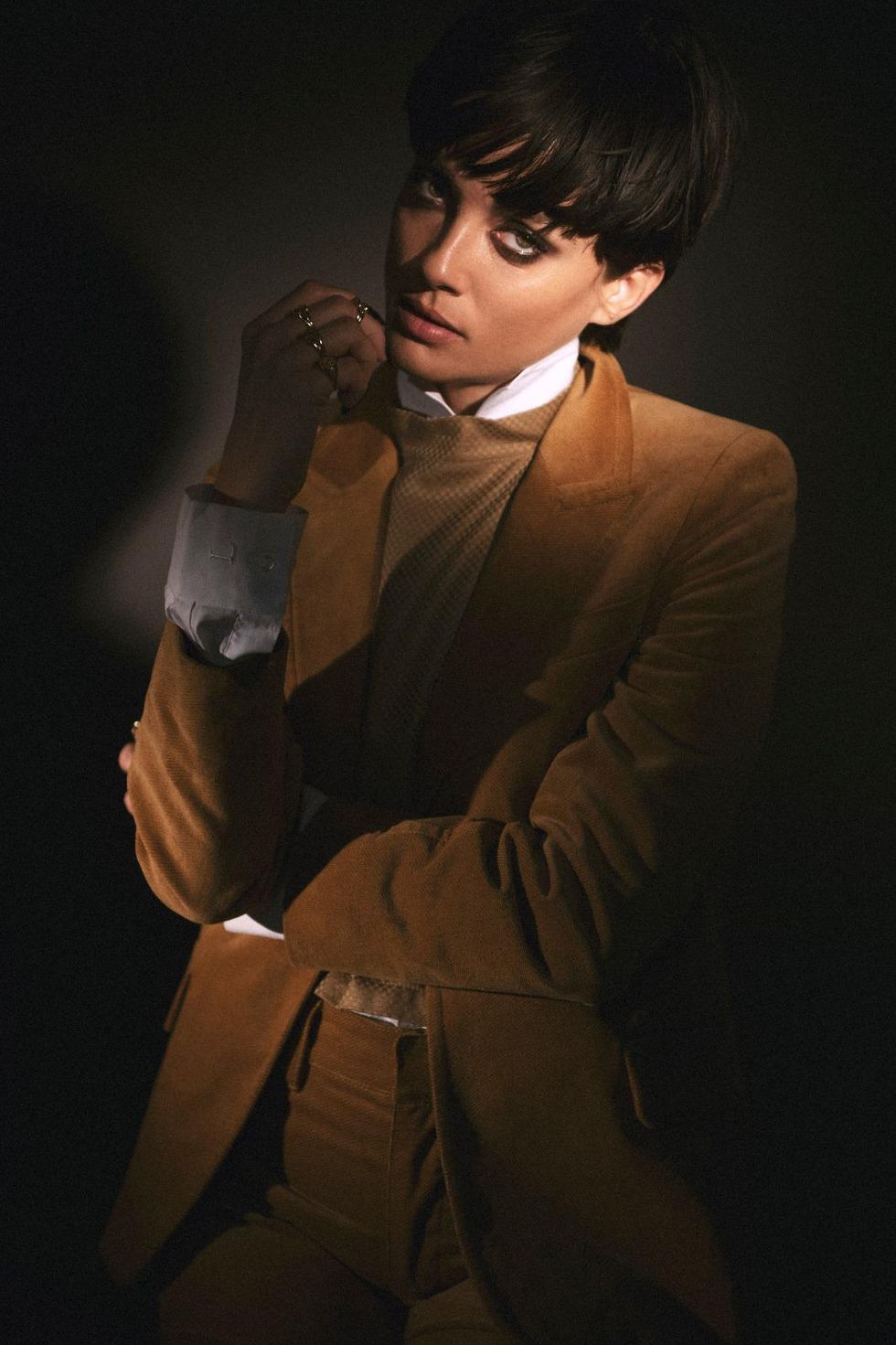
Is there a theme that runs through KIDS or is it a concept record?
Right after we finished Off the Radar and were going to tour, we had some issues in our family and Ori's mom passed away. She had cancer, and we were with her the entire process until the very last minute. This process was so life-changing. For a while, we knew that the album is just going to be about that, the perspective of having a mother and then not having her; that deep connection between parents and their children; and how generations are passing on knowledge, but also issues and how that relationship is important. It's the most important relationship between mother and son, mother and daughter, or father. The reason why we called the album KIDS was because we thought this whole album is going to be about that. But then life happened and it took us three years to finish the album, and so many different things have happened in this time. We were starting to lean towards more subjects. So it is very heavy on that subject, and there's still always that spirit. But there's also songs that are political, about social things, social media and realizing who we are and how we are as musicians. Still, you have my mom speaking in the entire album. This is really all about one generation passing something on to the next generation and how much responsibility it gives us as human beings.
Were there any specific artists that influenced the record or that you were really clinging to during the process?
There wasn't one thing, but we were listening to a shit ton of music. I can really say that for both me and also for Rousso, my partner. We have our main artists that we keep going back to, which are Kendrick Lamar, Radiohead, and, for me, PJ Harvey. These are the three big ones, but then we were listening to Missy Elliott, Lauryn Hill, Gorillaz and Blur.
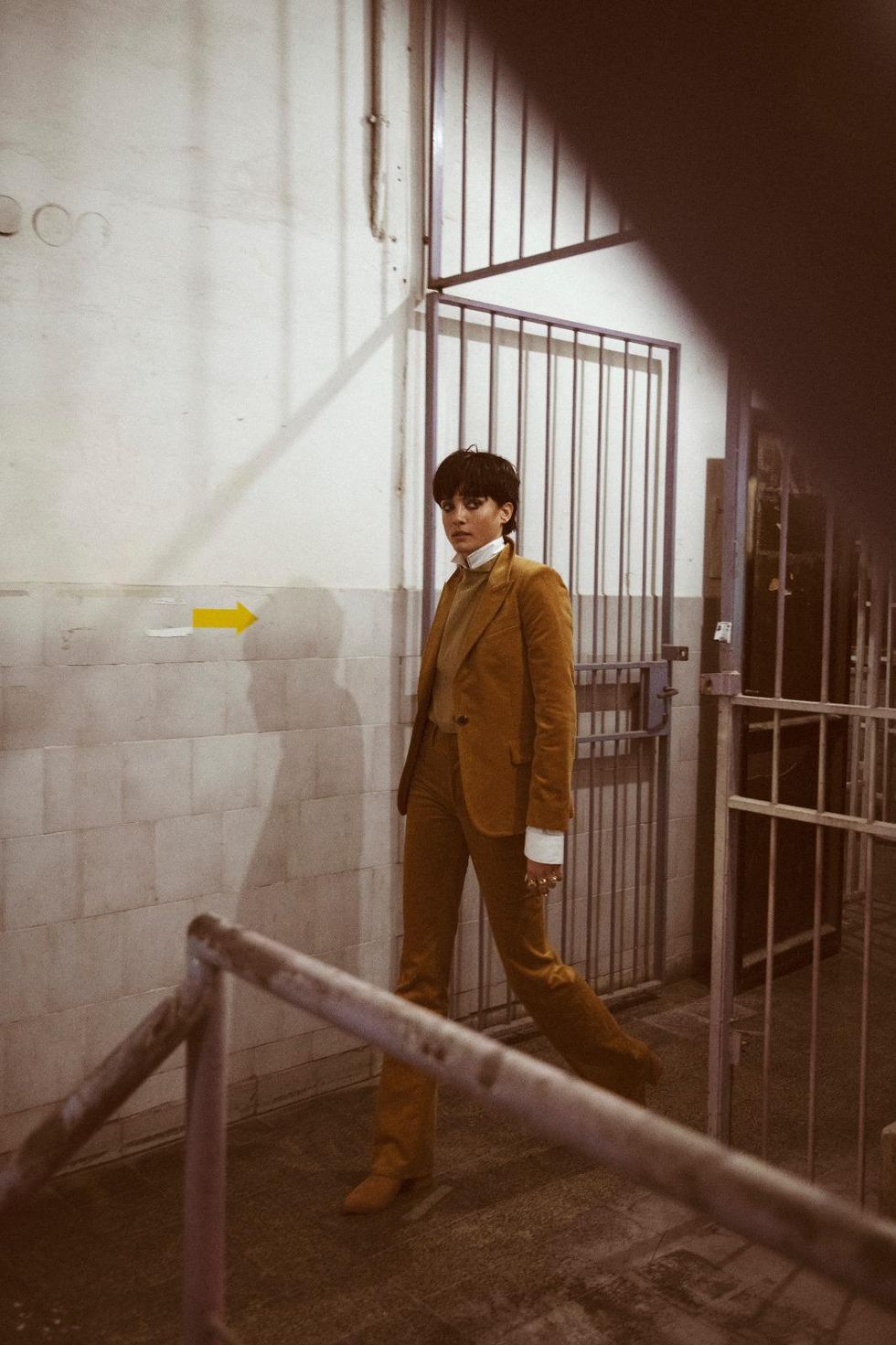
It's funny when I was listening to KIDS, there were moments where it sounded like Damon Albarn.
Yeah. One thing I was starting to learn is that our influences should not be hidden. I was at times like, "Oh, no, this is too Kendrick Lamar" [or] "this is too Gorillaz." But at one point we let that be and spread the word that this is what we did: that we took influences and made them our own.
Related | There Are No Limits to Lancey Foux
You released "Views" early last year. Why was that an important track to release ahead of the album?
"Views" is a song about the era of social media and fake people being able to buy the appearance of their success. It just started as a joke, we had different lyrics for it, and we just changed it to that because we found the sentence, "People buy views." And honestly, many times that is how things happen. You find something random, and then you build something around it. Then, it just became a song about how people can really be fake about how they're doing and about their success. I don't feel like this is a subject that was so urgent for me to write about, but I felt like it was expressing something deeper: How I really feel like that is a fucked up part about this era that we live in, because we don't really get to listen to something or view something without knowing the amount of success. Other people decide that for us.
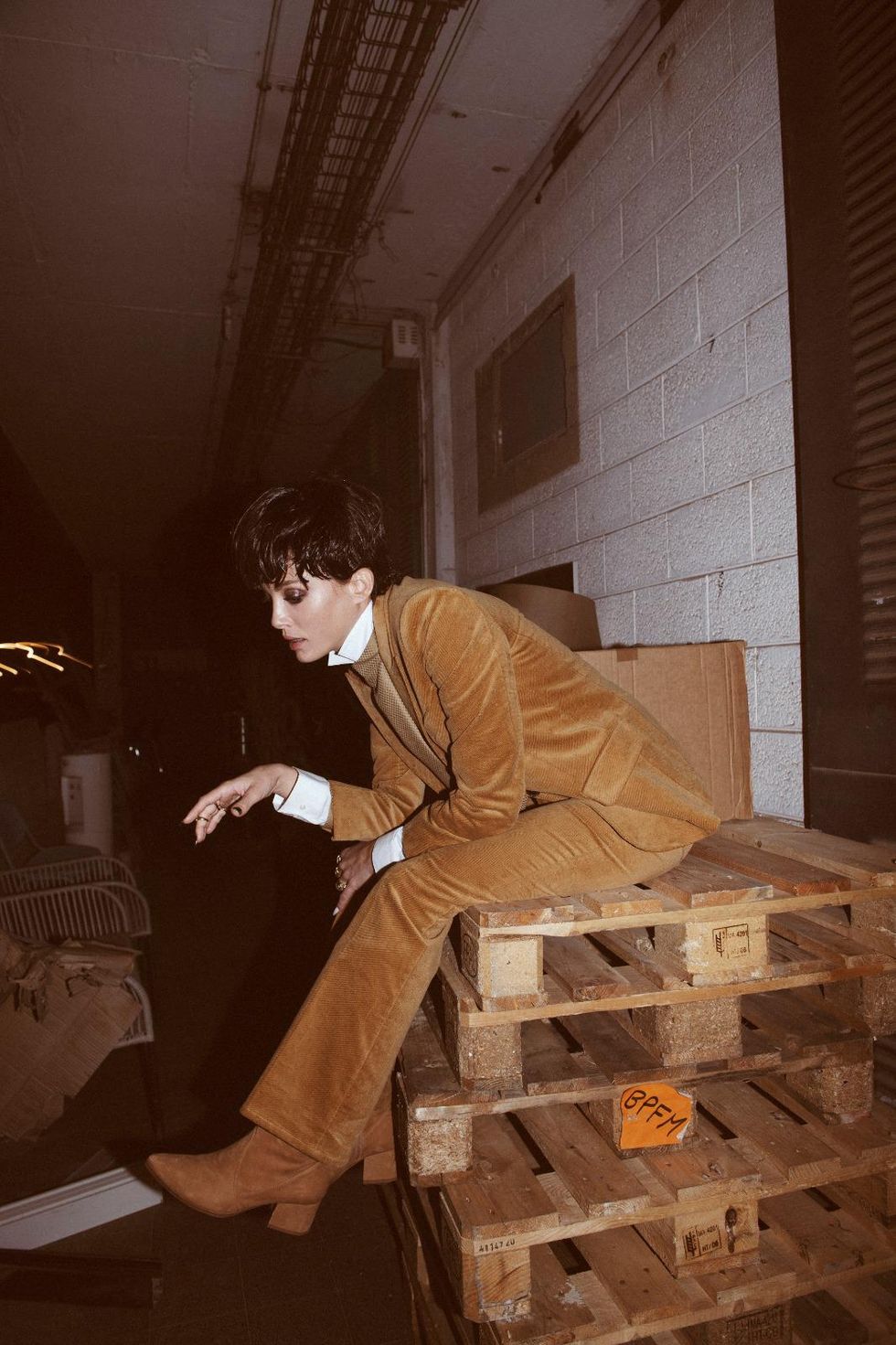
"No News on TV" seems to parallel the universal isolation felt throughout the pandemic. How did the pandemic influence this song?
"News On TV" is really a song that we wrote during lockdown. It's a song that talks about being in your house for too long and losing it. At the beginning of the pandemic I was experiencing euphoria, and I was starting to imagine the world as this utopian place where there's no buses and cars, and everything is so quiet. There is no politics or violence. Everything is about people staying at home and being free from the labor of making money. It was a moment of completely ignoring the fact that something pretty terrible is going down and just seeing the beauty of it, but also asking the question, "What would happen if the world was like that?" And I'm pretty sure modern people would not really know how to handle that.
In terms of working with your creative and romantic partner, have you had any challenges along the way, or has it been a seamless process?
I mean, every relationship has challenges, but Ori and I have established a relationship of so much respect and trust. I don't think we would have been doing this for such a long time if it wasn't working, and we've been doing this for seven years. Life is music, and music is life. And in a way, we live in this very weird and extreme relationship of everything is related to everything. Our home is this one big space where we live and we create. For us, it's just the only thing that we know in this relationship — and it works. It's an entire world in one relationship between two people. And Ori is the one thing that I'm most grateful for in life. He's an incredible partner.
What do you want people to get out of this album?
I feel like when I finish a song and when I release a song, I hope that people would enjoy it because I know that music for me has always been something that can really get my mind off of things and bring me inside a world and an atmosphere [to] get me through things in life. It can be escapism, but it could also be just a moment of being connected to something beyond you.
Photography: Eran Levi